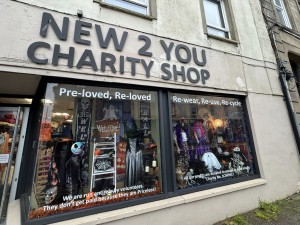Blog
Self-Harm after an experience of sexual violence
*Trigger Warning – This post discusses differing forms of self-harm and how this can impact survivors of sexual violence. If you are struggling or feeling vulnerable, please be mindful of your own self-care while reading this post and take time away from the material if you need to.
Sexual violence is traumatic and can impact self-esteem and self-confidence. Survivors of sexual violence may self-harm to cope with what has happened to them. Many survivors of sexual violence do not have the chance to talk about the complex and painful feelings associated with the trauma they experienced. Self-harm can be a way to cope with difficult feelings like betrayal, anger, pain and isolation, as well to cope with painful memories, overwhelming situations or experiences. Survivors may often feel misunderstood or judged for harming themselves because other people may see their behaviour, but not the underlying reasons for it.
Reading time 5-7min.
Thank You to New 2 You, Stewarton!
 We are incredibly grateful to New 2 You, Stewarton for their generous donation of £5,000 to our Rape Crisis service. This vital contribution will directly support our work in providing life-saving, trauma-informed support to survivors of sexual violence across Ayrshire.
We are incredibly grateful to New 2 You, Stewarton for their generous donation of £5,000 to our Rape Crisis service. This vital contribution will directly support our work in providing life-saving, trauma-informed support to survivors of sexual violence across Ayrshire.
Suicidal Thoughts and Feelings
*Trigger Warning: This post explicitly discusses suicide, suicidal thoughts and feelings. If you are struggling or feeling vulnerable, please be mindful of your own self-care while reading this post and take time away from the material if you need to.
Reading time: 5-7min
Why I am not watching “I Am Not A Rapist"
As someone who works in sexual violence prevention, I spend a lot of time discussing false accusations. TV shows and documentaries focusing on the prevalence of alleged false accusations make my job increasingly difficult. They suggest that false accusations of sexual violence are commonplace and reinforce the culture of blame and suspicion towards those who speak up about sexual violence.
Read time 1-2min
Shame
Although shame and guilt often overlap, they are not the same. Shame is more about how we view ourselves deep down, while guilt is about believing we have done something wrong. Both can weigh heavily, even though neither belongs to survivors of sexual violence.
Survivors have described shame as one of the most painful and isolating feelings they have experienced. It can feel tangled, overwhelming, and deeply personal. Many describe it as something that clings and weighs them down, leaving them feeling small, unworthy, or convinced that no one will want to help.
This can make it harder to ask for support or to talk about what happened.
But here’s the truth: this shame does not belong to you.
Support us
Every pound donated goes directly to supporting people who have experienced sexual violence.



















